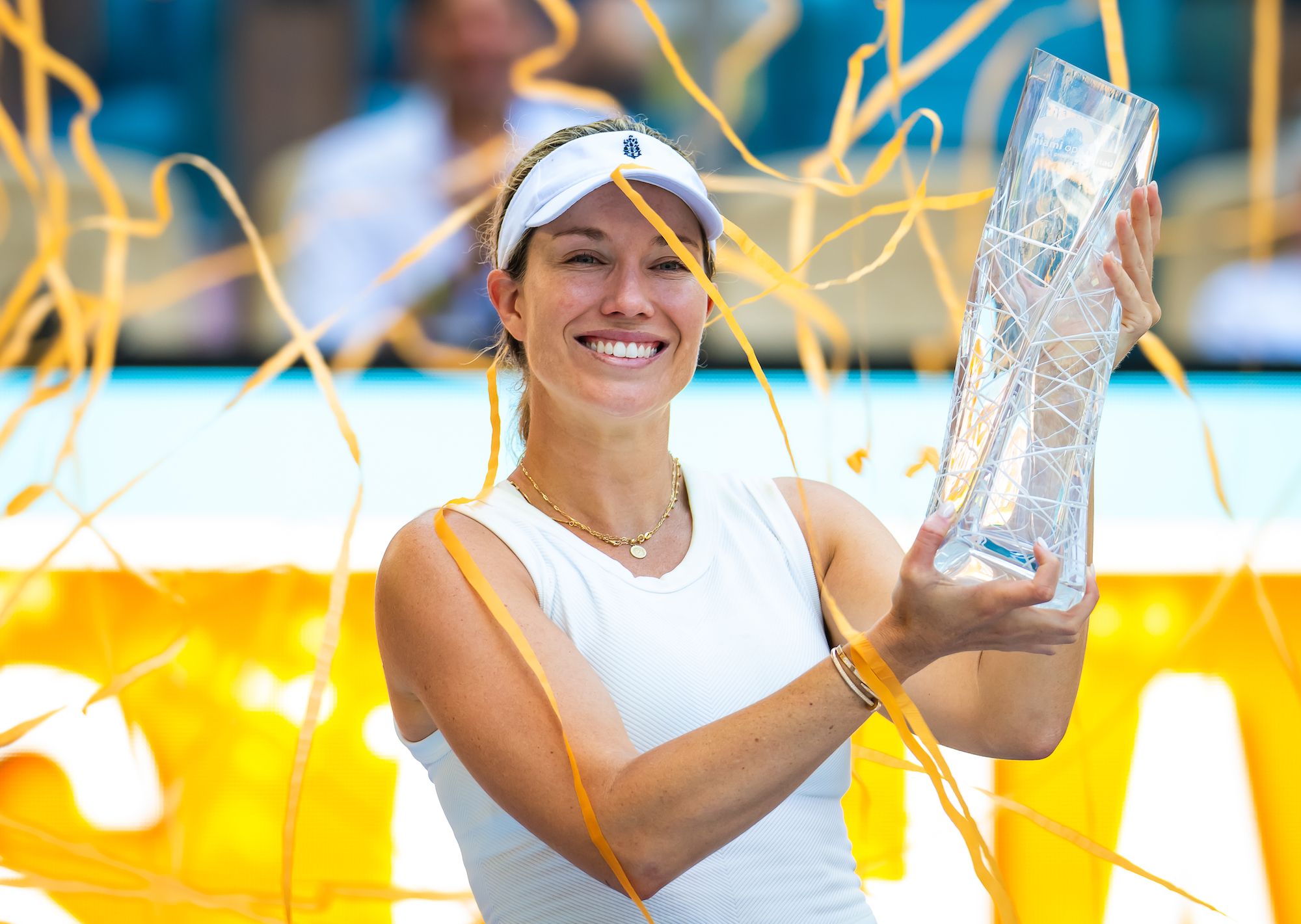At the Australian Open in January, unseeded American Danielle Collins barely fell short of defeating the best player in the world, then announced her retirement at the end of the year. To a casual observer, this might have been a puzzling sequence of events. Collins was just 30, and her screamy, go-big-or-go-to-hell brand of tennis had just cast Iga Swiatek into a rare moment of panic. Anyone who can go up a set and two breaks on the era's most dominant player still has a bright future in the sport. But Collins had discussed her rheumatoid arthritis and endometriosis diagnoses in the past, sometimes in vivid detail. This week, during her improbable title run at the Miami Open, she made her retirement logic clear again.
"I think it's really interesting how in a lot of different situations, I've had to justify the reasons behind retirement," Collins said, when asked by a reporter if her decision was final. "I'm living with a chronic inflammatory disease that affects your ability to get pregnant. And so that's a deeply personal situation."
Danielle Collins on people questioning her retirement decision. 🫶#MiamiOpen pic.twitter.com/PKfrEhp8GD
— TENNIS (@Tennis) March 28, 2024
This was Collins's last run at the Miami Open, a tournament that the Florida native used to beg her dad to attend. She remembers being told, "You're only going if you play in the tournament." This year, she won it.
Collins came in as the world No. 53, making her the lowest-ranked player to ever take the title in Miami; she beat five seeded players in her path, including hardcourt titan Elena Rybakina in the final, 7-5, 6-3. Anyone familiar with Collins's game knows that she has the strokes, and the decibels, to hang with the WTA elite in any given match. But keeping it all together for two weeks—with her family and "return idol" Andre Agassi in the stands, as well as a crowd that had her feeling "like I’m playing in front of thousands of my best friends"—generated an embarrassment of narrative riches. She even won the tournament with a trademark backhand banger.
Collins, the rare four-year college star to reach these heights in the pros, has compressed a successful tour career into the span between a completed master's degree and her age-30 season. (She may be channeling the most intensely collegiate American energy of any tennis professional of the last decade besides Ben Shelton.) Collins became as infamous for her howled "Come ons" as she was famous for her hellacious baseline game, which Swiatek, fresh off a loss, once described as "the fastest ball I have ever played against in a match." She peaked in 2022 when she made the Australian Open final and reached No. 7 in the world, but the 2023 season was a downswing, and she entered this year ranked outside the top 50.
At the ATX Open in March, Collins retired mid-match with a back injury, and she was wiped out in the second round of Indian Wells by Swiatek, so it was hard to expect much from her visit to Miami. But after losing the first set in her first-round match, she didn't drop another for the remainder of the tournament. I suspected her luck would finally run out against Rybakina, who was entering her second consecutive Miami Open final, but Collins found her breaks, defended 10 of 11 break points on her own serve, and outclassed her similarly powerful opponent worn down by prior three-setters. It was Collins's fifth-ever win against an opponent ranked in the top five, adding to a week full of milestones. This 1000-level title, her first, lifts her back into the top 25. Collins will be seeded again wherever she plays. Perhaps there are other trophies she can win for the first and last time.





